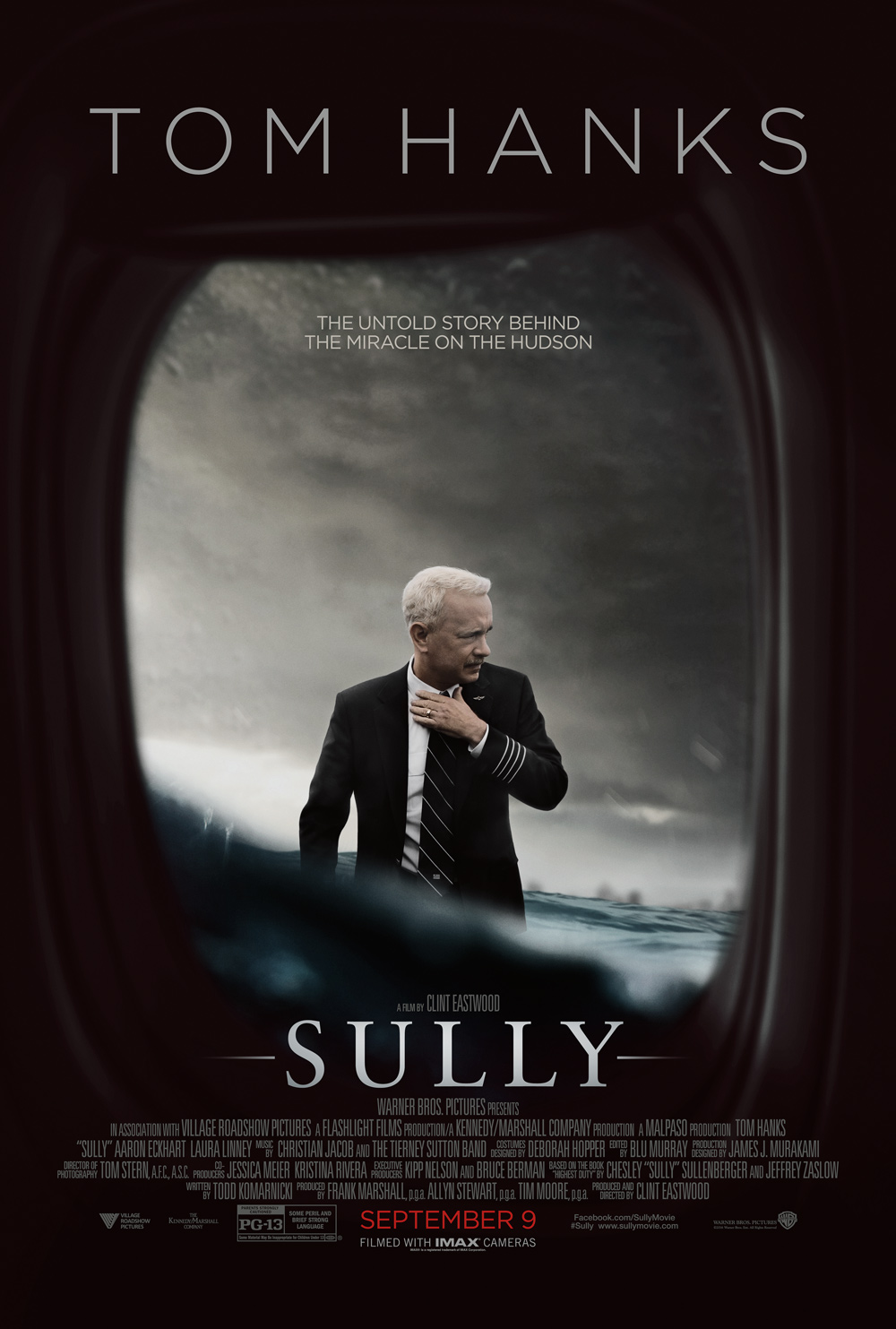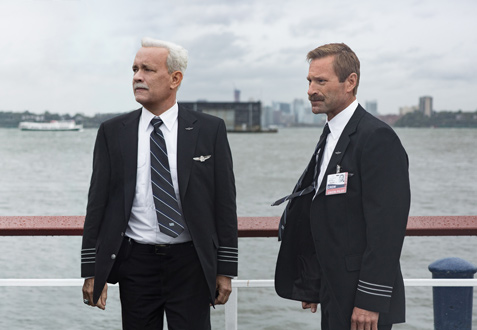
On January 15, 2009, commercial airline pilot Captain Chesley “Sully” Sullenberger safely landed US Airways Flight 1549 in the middle of the Hudson River when the plane struck a flock of geese shortly after takeoff, causing both engines to fail. It took the combined efforts of Sully’s crew and over 1,000 first responders in New York City and New Jersey to ensure the safety of all 155 passengers. But director Clint Eastwood’s big screen adaptation of the famous incident opens with an alternate version of the crash – one that ends in a fiery (and eerily familiar) explosion into the side of a New York City skyscraper. Why risk the fury of moviegoers with such distressing 9/11 imagery? Because it shows how differently it could have ended without Sully’s heroic act, and in doing so, gets the audience firmly behind its subject from the start.
The film begins several weeks after the so-called Miracle on the Hudson, with Sully (Tom Hanks) and his crew, including First Officer Jeffrey Skiles (Aaron Eckhart), making the talk show rounds to discuss their experience. Unbeknownst to the general public, there was an investigation taking place behind closed doors with the National Transportation Safety Board in order to determine whether Sully’s “forced water landing” (he refuses to use the word “crash”) was justified or reckless. So when a computer simulation of the accident reveals new data that suggests the airplane could have made it back to LaGuardia or Teterboro Airport without injury to any of the passengers, it casts a shadow of self-doubt on the experienced pilot, who’s already under an immense amount of pressure between the ongoing investigation, the numerous media commitments and financial problems at home, not to mention the PTSD caused by the incident itself.
“Sully” may not have enough narrative meat to warrant a feature-length movie, but it’s such a fascinating story that it survives on the sheer awe factor and a solid, workmanlike performance by Hanks. It’s hard to imagine a more fitting choice to play the modest and mild-mannered pilot, and although he doesn’t get a lot to work with from a character standpoint (Sully is extraordinary only in his ordinariness), the actor makes the most of even the smallest moments. Additionally, Eckhart (boasting a mustache worthy of its own billing) offers great support as Sully’s first officer, while the ensemble of character actors like Mike O’Malley, Chris Bauer, Ann Cusack and Jamey Sheridan lend an authenticity to the project that you wouldn’t get with bigger names. Laura Linney is the only actor who feels like she doesn’t belong, stuck in a thankless role as Sully’s wife Lorraine, whose few scenes with Hanks over the phone lack the emotional oomph that was intended.
For as conventional and safe as Eastwood plays the human drama, however, the movie’s gripping reenactment of the crash is a wonderfully staged piece of filmmaking that makes it all worth it. Eastwood doesn’t give up the goods easily, holding back the sequence until nearly an hour into the film’s lean 96-minute runtime, but he revisits the harrowing event multiple times, revealing new details and the different perspectives of everyone involved, from the pilots, to the passengers, to the flight crew, to the air traffic controller, to the U.S. Coast Guard rescue teams. You’d think it would get old, but it’s actually a really smart way to structure the film, maintaining what little suspense it can for a story that’s still fresh in a lot of people’s minds. Though “Sully” borders on syrupy sentimentalism at times and could have easily been undone by its own simplicity, the movie flourishes as an effective and enjoyable tribute to everyday heroism that signals the beginning of awards season.
Related Posts
Posted in: Entertainment, Movie Reviews, Movies
Tags: Aaron Eckhart, Clint Eastwood, Laura Linney, Sully, Tom Hanks
















